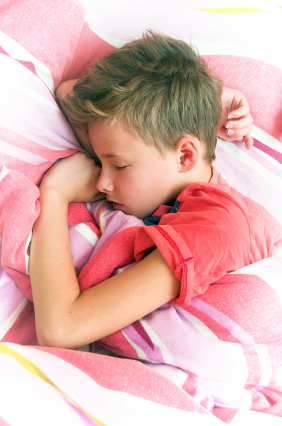 Enuresis (more commonly known as “bed wetting”) is the term given to the repeated voiding of urine during the day or night into bed or clothing.
Enuresis (more commonly known as “bed wetting”) is the term given to the repeated voiding of urine during the day or night into bed or clothing.
This behaviour may be accidental or intentional and to be classified as clinically significant must be present at least twice a week for three consecutive months. An individual may be experiencing significant distress or impairment in social, academic or occupational area of their life (DSM V, 2013).
Types of Enuresis (not just bed wetting)
There are various types of enuresis, including:
- Nocturnal only: Passage of urine only during sleep (more common for males).
- Diurnal only: Passage of urine during waking hours (more common for females).
- Nocturnal and diurnal: combination of night-time and day-time passage of urine.
Common Questions about Enuresis
At what age should my child stop wetting his/ her clothing?
The age when individuals cease voiding urine into clothes or bedding varies. However, Enuresis may be considered when an individual reaches a chronological age of 5 years (or equivalent developmental age) and if they are repeatedly voiding urine, and the behaviour cannot be attributed to physiological effects of a substance (e.g. medication, diuretics). It is important to contact a medical practitioner to determine if there is a biological reason for the individual unintentionally voiding urine.
Can adults experience Enuresis?
Yes; whilst less common in adults, approximately 1% of the population experience Enuresis over the age of 15 years.
What are the risk factors for developing Enuresis?
- Environmental factors: A number of environmental factors have been suggested for the onset of Enuresis. These include delayed or lax toilet training, and a variety psychosocial stresses.
- Genetic and Physiological factors: Enuresis has been associated with delays in the development of normal circadian rhythm of urine production. During sleep cycles the human body regulates the urine production and storage in the bladder. Poor development of circadian rhythm may lead to the production of urine beyond the storage capacity of the bladder, leading to bed wetting. Enuresis has been identified as having a strong genetic connection and may be prevalent in primary family members (e.g. siblings).
To make an appointment try Online Booking. Alternatively, you can call Vision Psychology Brisbane on (07) 3088 5422.
References
-
American Psychiatric Association (2013). Diagnostic and Statistical Manual of Mental Disorders (Fifth ed.). Arlington, VA: American Psychiatric Publishing. pp. 355-357.